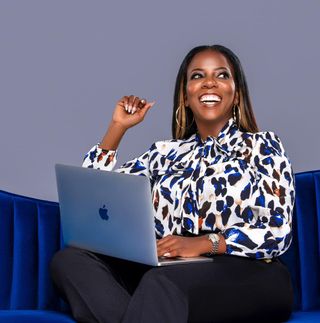Diversity, equity, and inclusion (DEI) coaching can be an underrated way for school leaders to learn how to better promote those goals within their district or at their school, says Dr. Courtney L. Teague, an experienced educator who is now a certified executive coach.
“What a diversity, equity, and inclusion coach does is provide an individual with support in identifying their unconscious biases that may show up in decision-making, may show up in policy creation, and may show up in meetings,” says Teague, who has worked as Director of Coaching for Verizon Innovative Learning Schools
Teague provides for tips school leaders looking to hire a diversity, equity, and inclusion coach.
1. Hire A Credentialed Coach
“Seek out a credentialed coach who specializes in that area and will be able to provide you with the support around inclusive leadership,” Teague says.
She recommends working with a coach who has obtained credentials from the International Coaching Federation, a respected education coaching credentialing organization.
2. Interview Potential Coaches
“I always tell people to interview the coach,” Teague says. “And when you interview the coach, you look to see if you could work together and that you are suitable for one another, and that that person understands your needs.”
Your DEI coach should be able to support you in your goals, and help you achieve what you want to achieve, Teague adds. This interview can help you and your coach establish your mutual goals for the process and establish accountability for both the coach and the individual being coached.
3. Realize Coaching Isn’t Counseling or Mentorship
It’s important to distinguish between coaching and other forms of support such as therapy and mentorship. “Therapy is something where you get to discuss the past,” Teague says. “Mentorship is really you're just asking the person to give you their insight.”
Meanwhile, coaching is all about the person being coached. “Coaching is about supporting you by asking you probing questions and open-ended questions that you answer,” Teague says.
4. Don’t View DEI Coaching As Being A Need Because of A Deficit
The decision to seek DEI coaching shouldn’t be undertaken from a place of the person being coached is doing something wrong or has some deficit in their skills. It is proactive improvement.
“Coaching is part of professional learning,” Teague says. “If you have a certification you get recertified every year or every other year, depending on what the certification may be. Coaching is an opportunity to learn and grow as well.”
5. The Value of Coaching Is Hard to Quantify
While coaching prices vary, for her own professional development, Teague has paid $200 per hour and had to commit to multiple sessions at that price. She says that the investment was well worth it because she got so much out of the experience.
“When I was in the classroom, I always tended to call on specific students,” she says. “I would gravitate toward students who were extroverts, similar to me. I would still engage with the students who were considered introverts, but not as much. And now that I received training and received coaching, I'm aware that not everyone responds the same, and so as a teacher, I have to consider the variability of learners and how I can provide them with opportunities to respond.”

